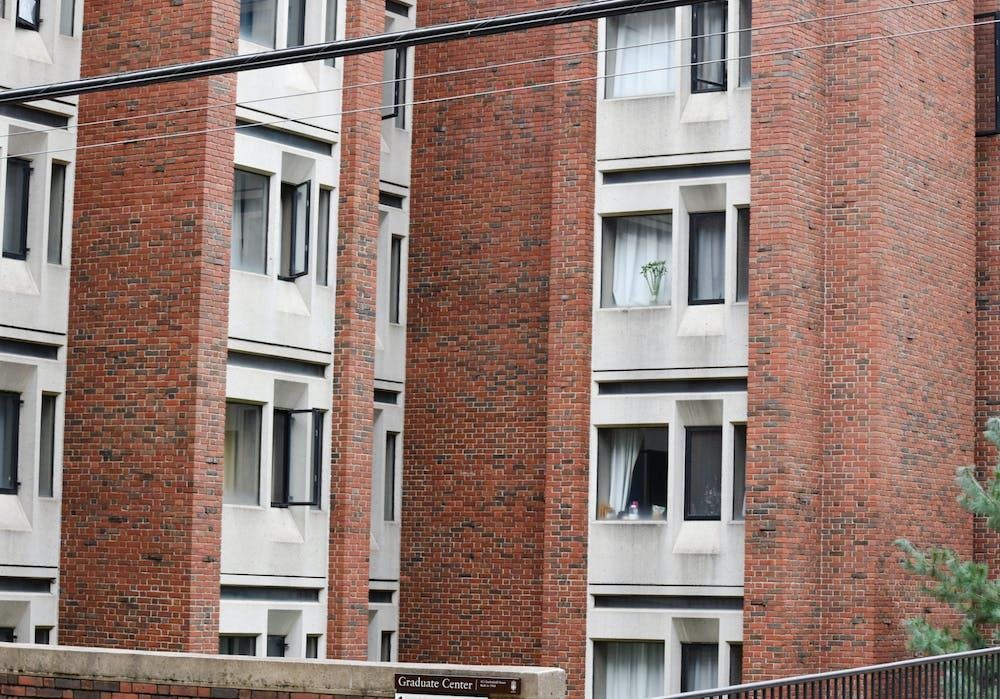The Graduate Labor Organization and the University reached an agreement on stipends and discrimination and harassment clauses in their new contract at a meeting last Wednesday — a major breakthrough in negotiations, which began in February.
“We’re happy to report that the three pillars of our campaign at this point have been achieved in the contract,” said Victoria Antonetti GS, GLO’s bargaining co-chair. “We have a fair, livable wage, we have equal pay (for grads on fellowship) and we have stronger discrimination and harassment protections.”
“We are in a much better place than we were in September,” she said, adding that GLO and the University had met around every two weeks for the past two months.
“In regard to the overall state of our collective bargaining negotiations, Brown has continued to work in good faith with union representatives throughout the semester,” University Spokesperson Brian Clark wrote in an email to The Herald. “After a number of productive sessions in recent weeks, we have multiple tentative agreements in place and look forward to continuing to work collegially through remaining points in the weeks ahead.”
Seeing the finish line: ongoing negotiations
According to Antonetti, grad students’ stipends are set to be raised by 8.8% in the new collective bargaining agreement. This raise will be retroactively applied to all pay since July, which was when the old contract officially expired.
The 8.8% is “combining our (7.75%) raise with our new healthcare payment” that now totals $1,050 per year, paid in quarterly installments, wrote Andrew Clark GS, GLO’s communications chair, in a message to The Herald. “Those two numbers are separated items in our contract, but we sometimes refer to the ‘effective raise,’ which combines both figures.”
Other changes discussed at the Nov. 15 session include changing references from “international” students to “non-citizen students,” as well as adding language “to give grads spousal support and better tax support,” according to GLO’s live report of the negotiations on X.
Moving forward, Antonetti said that negotiations will make “the transition back to the other articles (of the contract), having spent some time prioritizing the pillars.”
“I do think we see the finish line because our pillars have been won,” she added. “But there are still multiple articles that have not been looked at for a few months, so we're coming back to some of these.”
Antonetti “and the bargaining committee have put in countless hours to build the strongest contract possible for all grads,” Andrew Clark said in an interview with The Herald. “They've done an amazing job, and the strength of the contract that we're going to have is just a testament to that work — all the time they’ve put it in, all the conversations they've had.”
“It's a really exciting time to be a graduate worker here at Brown,” he added.
“Our contract is really powerful because it also is setting the precedent across contracts,” Antonetti said. “We’re winning things that don’t exist in any contract as it stands right now and hopefully will exist in all contracts.”
Taking Brown to court: enforcing arbitration award
On Nov. 7, GLO also filed a petition in the U.S. District Court for the District of Rhode Island to confirm and enforce their arbitration award from February.
In March 2022, Brown’s Department of Earth, Environmental and Planetary Sciences announced that it would reduce its top-ups — “higher rates paid in specific departments to remain competitive with other academic institutions” — to grad students due to the increased stipend negotiated by GLO earlier that year, according to the petition.
On Feb. 14, the parties’ arbitrator determined that “Brown violated the (collective bargaining agreement) when it reduced graduate student enhancements,” ordered Brown to “make whole” the affected students’ compensation and gave the University 60 days to “resolve any disputes related to the implementation of the remedy,” reads the petition.
“We’re thrilled to ensure grads get all the pay they're entitled to,” Andrew Clark said.
Brown compensated its then-second and third-year grad students — including those on fellowship — but it did not provide back pay to then-first-year grad students. In July, the arbitrator clarified that the award also applied to students who were in their first year during the 2022-2023 school year. At this point, the University paid back pay to first-year students but excluded those on fellowship, according to the petition.
The Nov. 7 petition calls on the court to “confirm and enforce the Award” and order Brown to pay back pay to “students who were in their first year as (graduate student employees) in 2022-2023,” including those on fellowships.
“The larger questions around top-ups have been resolved,” Brian Clark wrote in response to questions about the petition. “This concern from GLO relates to students who were on fellowship appointments in 2022-23, and therefore not part of the bargaining unit.”
Filing grievances: healthcare copays
In October, GLO and the University also settled a grievance regarding graduate students’ healthcare provider, Andrew Clark said.
“We went through a grievance process because this academic year Brown changed our health insurance provider,” Andrew Clark said, adding that the change “resulted in a doubling of copayments for grads along with other increased expenses.”
“That was a material change that we are supposed to be consulted on based on the language of our contract, so we were able to file a grievance and get our employer to cover the difference for those new health care expenses,” he said.
GLO and the University resolved the dispute by agreeing to launch the Graduate Student Copay Funding Program in early November, according to an email sent to GLO members at the end of October.
“It’s important to underscore the level of health care support Brown provides to students in these programs — we pay the full premium for students enrolled in these programs, 75% of the premium for dependents and the full health services fee,” Brian Clark wrote. “There is now a CAPS therapist embedded in the Graduate School for convenience and privacy. Providing access to affordable and high-quality health care remains a top priority.”
The resolution also included a provision that “GLO and Brown will meet before the expiration of this year's health insurance plan to develop strategies and initiatives to keep premiums and copay amounts as low as possible,” according to the email.
“We’re glad to know Brown grads will not have to pay more than they’re supposed to for their prescription drugs and their therapy and their doctor visits,” Andrew Clark said.

Katie Jain is a University News editor from New Jersey overseeing the graduate student life beat. She is a senior concentrating in International and Public Affairs and History.





